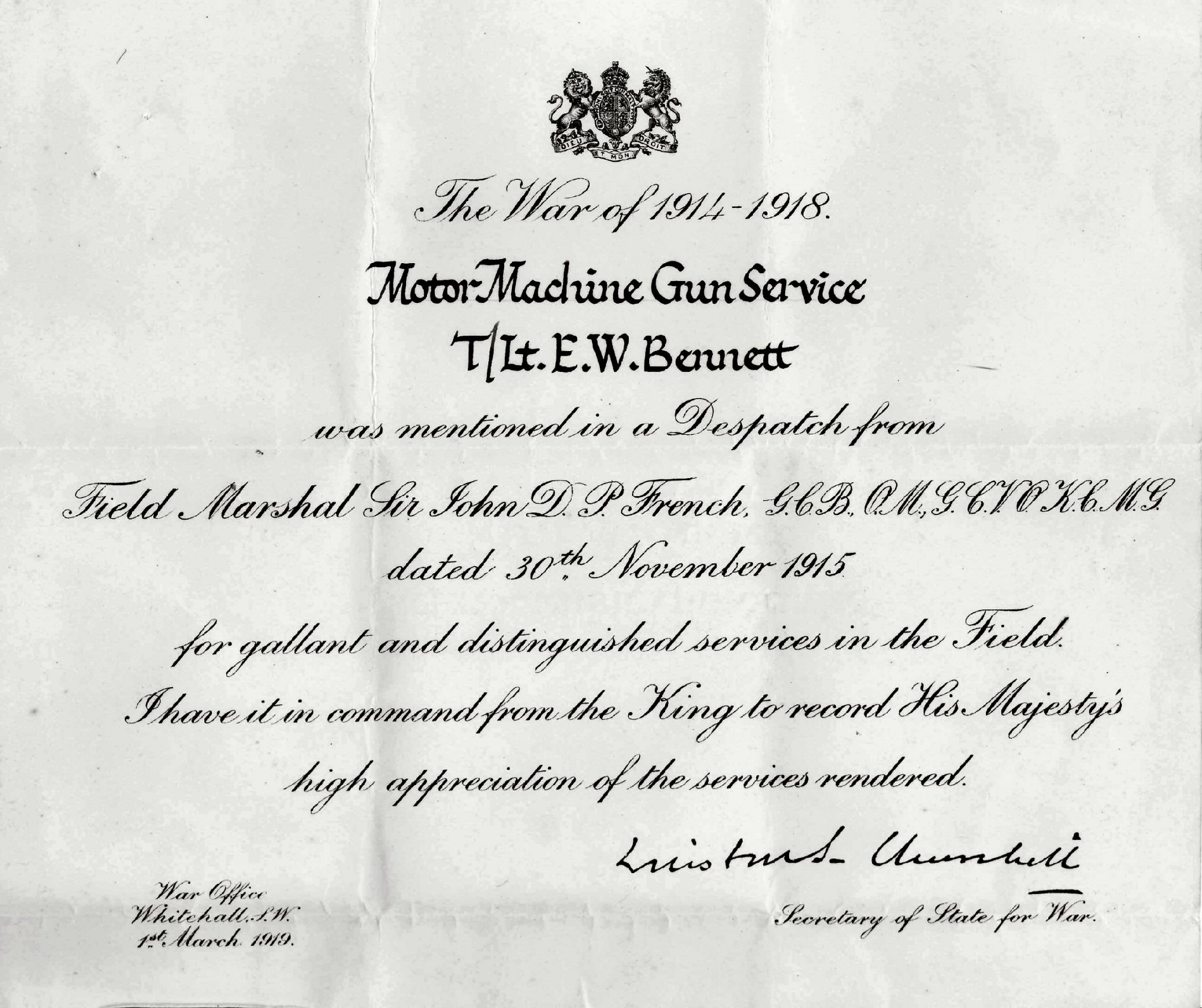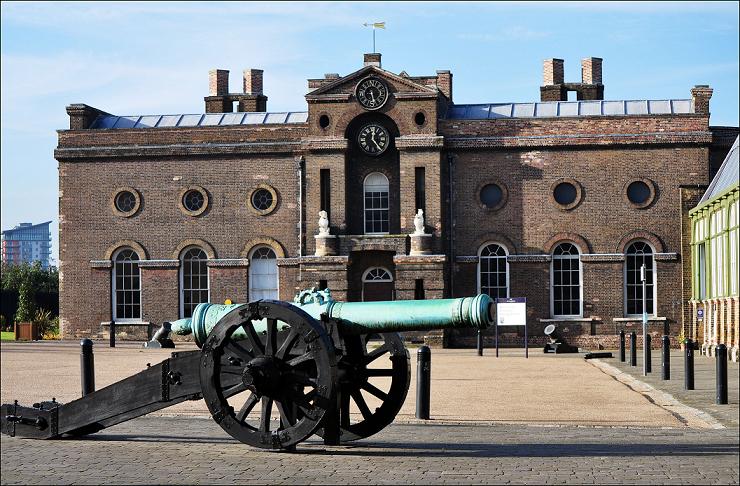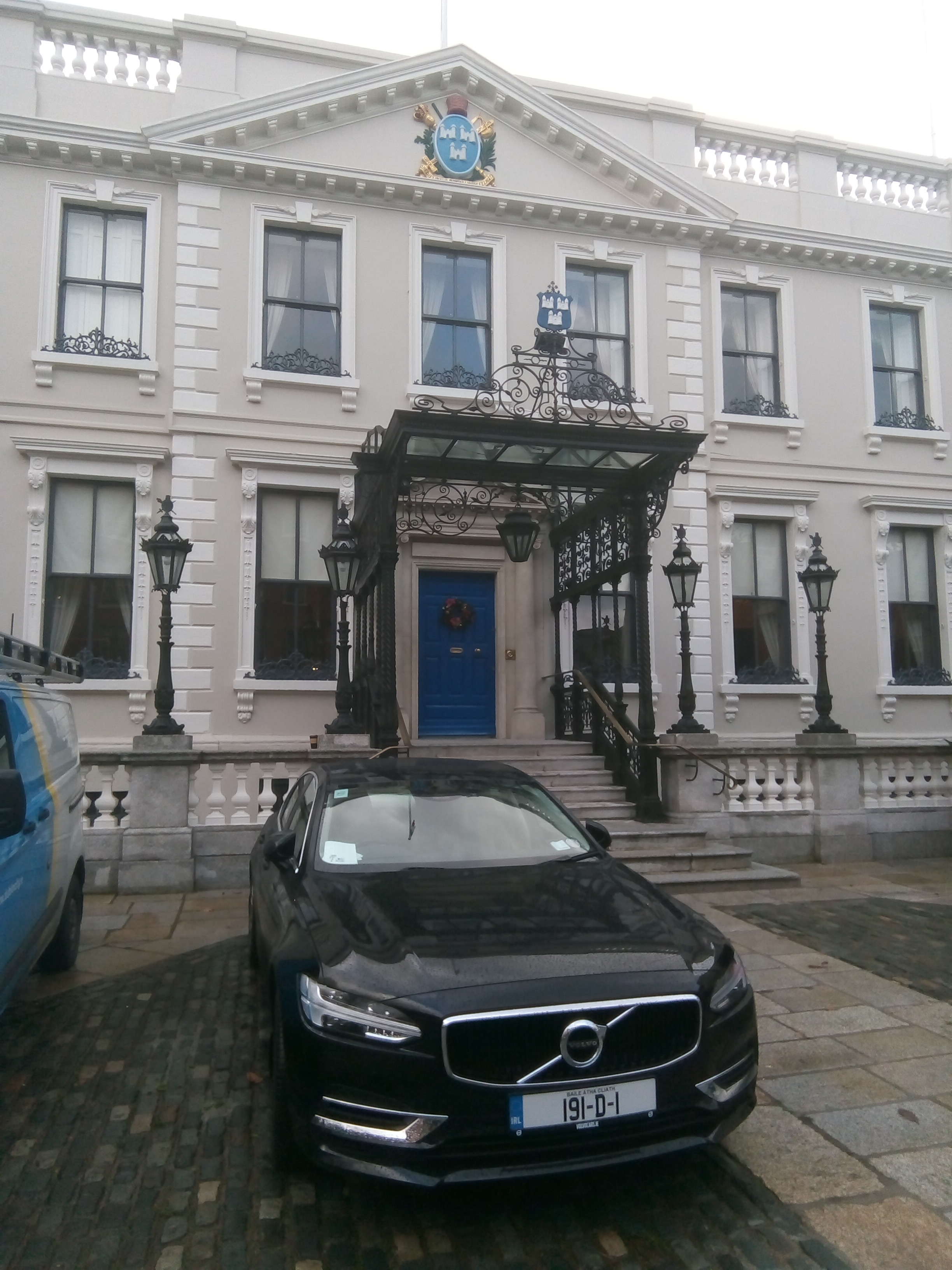|
Frederick Alfred Pile
General Sir Frederick Alfred Pile, 2nd Baronet, (14 September 1884 – 14 November 1976) was a senior British Army officer who served in both World Wars. In the Second World War he was General Officer Commanding Anti-Aircraft Command, one of the elements that protected Britain from aerial attack. Early life Pile was born in Dublin as the second child of Sir Thomas Devereux Pile, 1st Baronet and his wife, Caroline Maude Nicholson. Sir Thomas served as the Lord Mayor of Dublin from 1900 to 1901. Pile had an older sister and two younger brothers. His youngest brother, Cyril John Pile, served in the Royal Flying Corps during the First World War, and was killed in action in 1917. After attending the Royal Military Academy at Woolwich, Pile was commissioned into the Royal Artillery in July 1904. He initially served in India, together with Britain and South Africa. Military career Pile served in the First World War and was involved in the retreat from Mons and was a Sta ... [...More Info...] [...Related Items...] OR: [Wikipedia] [Google] [Baidu] |
Dublin
Dublin is the capital and largest city of Republic of Ireland, Ireland. Situated on Dublin Bay at the mouth of the River Liffey, it is in the Provinces of Ireland, province of Leinster, and is bordered on the south by the Dublin Mountains, part of the Wicklow Mountains range. Dublin is the largest city by population on the island of Ireland; at the 2022 census of Ireland, 2022 census, the city council area had a population of 592,713, while the city including suburbs had a population of 1,263,219, County Dublin had a population of 1,501,500. Various definitions of a metropolitan Greater Dublin Area exist. A settlement was established in the area by the Gaels during or before the 7th century, followed by the Vikings. As the Kingdom of Dublin grew, it became Ireland's principal settlement by the 12th century Anglo-Norman invasion of Ireland. The city expanded rapidly from the 17th century and was briefly the second largest in the British Empire and sixth largest in Western Europ ... [...More Info...] [...Related Items...] OR: [Wikipedia] [Google] [Baidu] |
Order Of The White Eagle (Serbia)
The Order of the White Eagle () was a state order in the Kingdom of Serbia (1883–1918) and the Kingdom of Yugoslavia (1918–1945). It continues as a dynastic order, with appointments currently made by Alexander, Crown Prince of Yugoslavia. History Monarch, King Milan I of Serbia instituted the Order of the White Eagle on 23 January 1883, concurrently with the Order of St. Sava. The Order had five classes and was conferred on Serbian and Yugoslav citizens for achievements in peace or war, or for special merits to the Crown, the state and nation. In the period between 1883 and 1898 Order of the White Eagle was the highest award in the Kingdom of Serbia. In 1898 the Royal Order of Miloš the Great took precedence over the White Eagle and in 1904 the former was replaced by the Order of Karađorđe's Star. After his accession to the throne in 1903, King Peter I of Serbia continued awarding the Order of the White Eagle, but the reverse of the medallion had the year of the procla ... [...More Info...] [...Related Items...] OR: [Wikipedia] [Google] [Baidu] |
Mentioned In Dispatches
To be mentioned in dispatches (or despatches) describes a member of the armed forces whose name appears in an official report written by a superior officer and sent to the high command, in which their gallant or meritorious action in the face of the enemy is described. In some countries, a service member's name must be mentioned in dispatches as a condition for receiving certain decorations. Being mentioned in dispatches entitles a recipient to wear a small metallic device, but does not include an entitlement to post-nominals. United Kingdom, British Empire and Commonwealth of Nations United Kingdom Servicemen and women of the United Kingdom or the Commonwealth who are mentioned in despatches are not awarded a medal for their actions, but receive a certificate and wear an oak leaf device on the ribbon of the appropriate campaign medal. A smaller version of the oak leaf device is attached to the ribbon when worn alone. Prior to 2014, only one device could be worn on a ribb ... [...More Info...] [...Related Items...] OR: [Wikipedia] [Google] [Baidu] |
Staff (military)
A military staff or general staff (also referred to as army staff, navy staff, or air staff within the individual services) is a group of officers, enlisted, and civilian staff who serve the commander of a division or other large military unit in their command and control role through planning, analysis, and information gathering, as well as by relaying, coordinating, and supervising the execution of their plans and orders, especially in case of multiple simultaneous and rapidly changing complex operations. They are organised into functional groups such as administration, logistics, operations, intelligence, training, etc. They provide multi-directional flow of information between a commanding officer, subordinate military units and other stakeholders.PK Mallick, 2011Staff System in the Indian Army: Time for Change Centre for Land Warfare Studies, New Delhi, vol 31. A centralised general staff results in tighter top-down control but requires larger staff at hea ... [...More Info...] [...Related Items...] OR: [Wikipedia] [Google] [Baidu] |
Great Retreat
The Great Retreat (), also known as the retreat from Mons, was the long withdrawal to the River Marne in August and September 1914 by the British Expeditionary Force (BEF) and the French Fifth Army. The Franco-British forces on the Western Front in the First World War had been defeated by the armies of the German Empire at the Battle of Charleroi (21 August) and the Battle of Mons (23 August). A counter-offensive by the Fifth Army, with some assistance from the BEF, at the First Battle of Guise (Battle of St. Quentin failed to end the German advance and the retreat continued over the Marne. From 5 to 12 September, the First Battle of the Marne ended the Allied retreat and forced the German armies to retire towards the Aisne River and to fight the First Battle of the Aisne . Reciprocal attempts to outflank the opposing armies to the north known as the Race to the Sea followed from Background Battle of the Frontiers, 7 August – 13 September The Battle of the Fronti ... [...More Info...] [...Related Items...] OR: [Wikipedia] [Google] [Baidu] |
World War I
World War I or the First World War (28 July 1914 – 11 November 1918), also known as the Great War, was a World war, global conflict between two coalitions: the Allies of World War I, Allies (or Entente) and the Central Powers. Fighting took place mainly in European theatre of World War I, Europe and the Middle Eastern theatre of World War I, Middle East, as well as in parts of African theatre of World War I, Africa and the Asian and Pacific theatre of World War I, Asia-Pacific, and in Europe was characterised by trench warfare; the widespread use of Artillery of World War I, artillery, machine guns, and Chemical weapons in World War I, chemical weapons (gas); and the introductions of Tanks in World War I, tanks and Aviation in World War I, aircraft. World War I was one of the List of wars by death toll, deadliest conflicts in history, resulting in an estimated World War I casualties, 10 million military dead and more than 20 million wounded, plus some 10 million civilian de ... [...More Info...] [...Related Items...] OR: [Wikipedia] [Google] [Baidu] |
British Generals Whittaker, Wason And Pile At A
British may refer to: Peoples, culture, and language * British people, nationals or natives of the United Kingdom, British Overseas Territories and Crown Dependencies. * British national identity, the characteristics of British people and culture * British English, the English language as spoken and written in United Kingdom of Great Britain and Northern Ireland and, more broadly, throughout the British Isles * Celtic Britons, an ancient ethno-linguistic group * Brittonic languages, a branch of the Insular Celtic language family (formerly called British) ** Common Brittonic, an ancient language Other uses *People or things associated with: ** Great Britain, an island ** British Isles, an island group ** United Kingdom, a sovereign state ** British Empire, a historical global colonial empire ** Kingdom of Great Britain (1707–1800) ** United Kingdom of Great Britain and Ireland (1801–1922) * British Raj, colonial India under the British Empire * British Hong Kong, colonial Ho ... [...More Info...] [...Related Items...] OR: [Wikipedia] [Google] [Baidu] |
British Raj
The British Raj ( ; from Hindustani language, Hindustani , 'reign', 'rule' or 'government') was the colonial rule of the British The Crown, Crown on the Indian subcontinent, * * lasting from 1858 to 1947. * * It is also called Crown rule in India, * * * * or direct rule in India. * Quote: "Mill, who was himself employed by the British East India company from the age of seventeen until the British government assumed direct rule over India in 1858." * * The region under British control was commonly called India in contemporaneous usage and included areas directly administered by the United Kingdom of Great Britain and Ireland, United Kingdom, which were collectively called ''Presidencies and provinces of British India, British India'', and areas ruled by indigenous rulers, but under British British paramountcy, paramountcy, called the princely states. The region was sometimes called the Indian Empire, though not officially. As ''India'', it was a founding member of th ... [...More Info...] [...Related Items...] OR: [Wikipedia] [Google] [Baidu] |
Officer (armed Forces)
An officer is a person who holds a position of authority as a member of an Military, armed force or Uniformed services, uniformed service. Broadly speaking, "officer" means a commissioned officer, a non-commissioned officer (NCO), or a warrant officer. However, absent contextual qualification, the term typically refers only to a force's ''commissioned officers'', the more senior members who derive their authority from a Commission (document), commission from the head of state. Numbers The proportion of officers varies greatly. Commissioned officers typically make up between an eighth and a fifth of modern armed forces personnel. In 2013, officers were the senior 17% of the British armed forces, and the senior 13.7% of the French armed forces. In 2012, officers made up about 18% of the German armed forces, and about 17.2% of the United States armed forces. Historically armed forces have generally had much lower proportions of officers. During the First World War, fewer than ... [...More Info...] [...Related Items...] OR: [Wikipedia] [Google] [Baidu] |
Royal Military Academy, Woolwich
The Royal Military Academy (RMA) at Woolwich, in south-east London, was a British Army military academy for the training of Officer (armed forces), commissioned officers of the Royal Artillery and Royal Engineers. It later also trained officers of the Royal Corps of Signals and other technical corps. RMA Woolwich was commonly known as "The Shop" because its first building was a converted workshop of the Royal Arsenal, Woolwich Arsenal. History Origins in the Royal Arsenal An attempt had been made by the Board of Ordnance in 1720 to set up an academy within its Arsenal (then known as the Warren) to provide training and education for prospective officers of its new Royal Regiment of Artillery, Regiment of Artillery and Corps of Royal Engineers, Corps of Engineers (both of which had been established there in 1716). A new building was being constructed in readiness for the Academy and funds had been secured, seemingly, through investment in the South Sea Company; but the latter's col ... [...More Info...] [...Related Items...] OR: [Wikipedia] [Google] [Baidu] |
Royal Flying Corps
The Royal Flying Corps (RFC) was the air arm of the British Army before and during the First World War until it merged with the Royal Naval Air Service on 1 April 1918 to form the Royal Air Force. During the early part of the war, the RFC supported the British Army by artillery co-operation and photographic reconnaissance. This work gradually led RFC pilots into aerial battles with German pilots and later in the war included the strafing of enemy infantry and emplacements, the bombing of German military airfields and later the strategic bombing of German industrial and transport facilities. At the start of World War I the RFC, commanded by Brigadier-General Sir David Henderson, consisted of five squadrons – one observation balloon squadron (RFC No 1 Squadron) and four aeroplane squadrons. These were first used for aerial spotting on 13 September 1914 but only became efficient when they perfected the use of wireless communication at Aubers Ridge on 9 May 1915. Ae ... [...More Info...] [...Related Items...] OR: [Wikipedia] [Google] [Baidu] |
Lord Mayor Of Dublin
The Lord Mayor of Dublin () is the honorary title of the chairperson ( ) of Dublin City Council which is the local government body for the city of Dublin, the capital of Ireland. The incumbent, since December 2024, is Fine Gael councillor Emma Blain who was elected to the position following James Geoghegan (Fine Gael politician), James Geoghegan's election to Dáil Éireann at the 2024 Irish general election. The office holder is elected annually by the members of the council. Background The office of Mayor of Dublin was created in June 1229 by Henry III of England, Henry III. The office of ''Mayor'' was elevated to ''Lord mayor, Lord Mayor'' in 1665 by Charles II of England, Charles II, and as part of this process received the honorific ''the Right Honourable'' (''the Rt Hon.''). Lord mayors were members of the Privy Council of Ireland, which also entitled them to be addressed as ''the Right Honourable''. Though the Privy Council was abolished in 1922, the Lord Mayor contin ... [...More Info...] [...Related Items...] OR: [Wikipedia] [Google] [Baidu] |







